Communiqué’s first East African event + Twitch cuts off Kenyan monetisation
A blueprint for East Africa’s creative economy growth and Twitch’s blow to Kenyan streamers
Hello there,
If you weren’t in Nairobi yesterday for Communiqué IRL, you missed out on some powerful conversations about how East Africa’s creative economy can reach its next level of growth, and the chance to connect with the brilliant minds driving the sector forward.
But don’t worry, we’ve got you covered. In today’s Digest, we bring you the key takeaways from the event.
Also in this issue:
Twitch suspends monetisation for Kenyan users
Centre Spread 🗞️
What we learnt at Communiqué IRL Nairobi
Yesterday evening, we hosted the second edition of Communiqué IRL (In Real Life), our networking and conversation series, in Nairobi. Supported by Creation Africa and Alliance Française, the event brought together leading voices in the creative economy, including, content creator Brian Kimanzi; Mark Kaigwa, Managing Director of digital services platform Nendo; Ezekiel Onyango, founder of the Pan-African Innovation Policy and Evidence Center; June Gachui, founder of JGIP Consultants; and Wangui Njoroge. The discussion explored how East Africa’s creative economy can unlock its next phase of growth through data, structure, and collaboration.
The event featured a keynote address and two panel conversations highlighting the promise of East Africa’s creative economy. But the discussion kept circling back to three missing pieces: data, structure and collaboration.
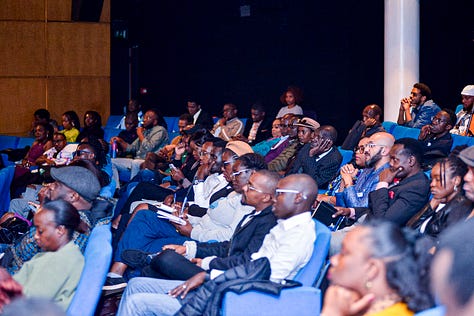
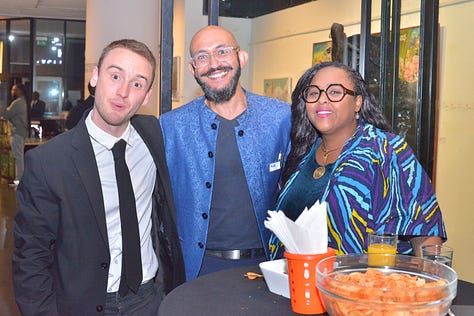
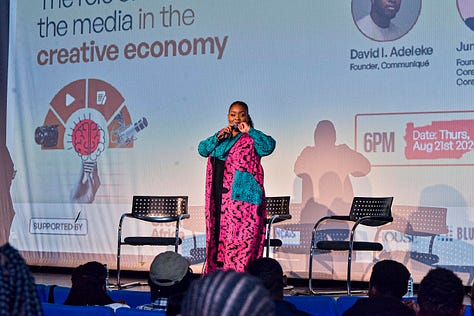
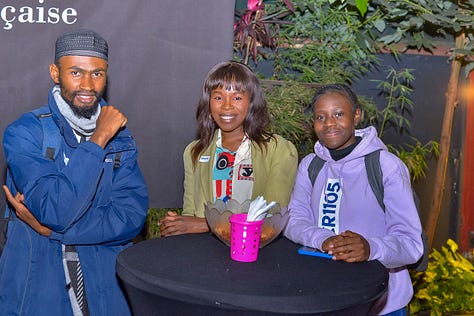
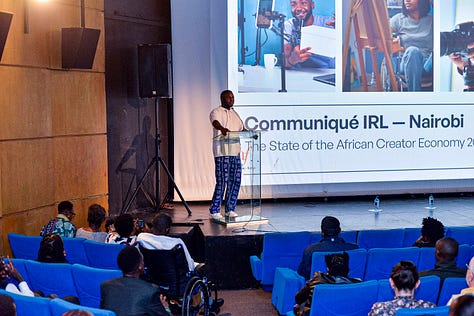

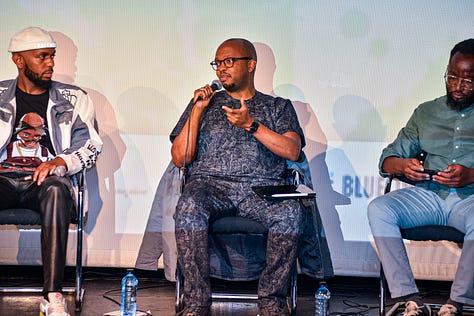

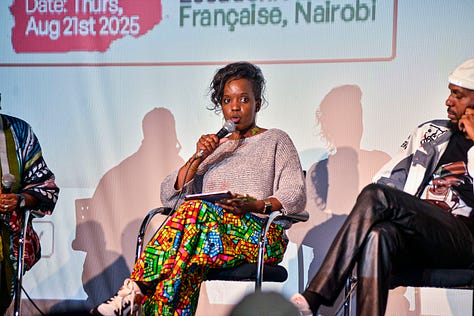
A major takeaway was the call for a structured way of collecting and interpreting data. Kenya, Kaigwa noted, is not short of data about the creative economy, but of interpretation. “We have an abundance of numbers, but they are not equally distributed and poorly understood.” Raw statistics remain meaningless without asking the “So what?” question. Brian Kimanzi added that structures must be built to help apply data in ways that support growth.
Ezekiel Onyango, noted that success lies in creating industrial policies from within. He drew comparisons with fintech and manufacturing, where sustainability comes not from government decree but from industries organising themselves. “Organising a challenge for us in the industry. We have to make our own industrial policies. The role of public policy is to supplement and protect industrial policies.”
There have already been some early successes with the industry collaborating with the government. For instance, the Kenya Film Satellite Account, a partnership between the Kenya Film Commission and the Bureau of Statistics to quantify the film industry’s contribution to GDP, showed that 70% of budgets spill into hospitality and legal services, among other industries. The project persuaded the government to allocate 900 million shillings ($7m) to film development in 2024/25, the first such funding since independence..
Another key theme was the need to talk more about the business side of creativity. June Gachui observed that the media often relegates industry stories to the entertainment pages, obscuring the fact that many practitioners are running serious businesses. This framing, she suggested, deprives the sector of investment and legitimacy. She noted that the sector needs media coverage that recognises creative enterprises as legitimate economic actors, not just entertainment curiosities.
The evening's discussions converged on a fundamental truth: East Africa’s creative economy cannot subsist on “vibes only”. It must gather reliable data, impose its own rules, and demand recognition as a business sector worthy of capital and policy support.
What’s Next
Communiqué IRL was conceived to create a space where members of our community and the wider creative sector can share stories, exchange ideas, and deepen industry relationships. Last night showed just how necessary these conversations are, and we’re committed to keeping them going.
Thank you to everyone who joined us and made the evening what it was. For those who couldn’t make it, don’t worry, another edition is already in the works. Subscribe and follow us on social media to stay updated on when and where it will happen.
Twitch suspends monetisation in Kenya
Starting September 30, 2025, Kenyan Twitch users won’t be able to monetise their channels anymore. The video streaming platform stated that it is suspending its Partner and Affiliate programs in the country due to recent government policies.
While Twitch did not specify which policies were responsible, the country’s 2024 Tax Law Amendment Bill and the Finance Bill’s provisions on Digital and Non-Resident Platforms taxes have been fingered as likely factors. Industry analyst and investor Marie Lora-Mungai noted that these regulations may have directly influenced the company’s decision because of the increased compliance demands, new direct taxes, and probable requirements for platforms to act as withholding agents for creator payments.
Streamers typically monetise channels through subscriptions, where viewers pay monthly for perks, or via Bits, the platform’s virtual currency that converts to earnings, and ad revenue sharing. With the suspension, Kenyan streamers will no longer have access to these revenue streams. However, Twitch clarified that creators can continue streaming but will not receive payouts directly from the platform.
With this development, only alternative monetisation avenues like third-party donations, sponsorships, merchandise sales, and affiliate links are available for Kenyan users.
Twitch, best known as the preferred platform for gaming content, has been steadily gaining traction in Kenya, particularly due to the country's boom in eSports. The suspension is, therefore, a setback for local streamers. Some stakeholders argue, however, that Twitch’s audience in Kenya is still relatively small compared to platforms such as TikTok, which dominates the content space. Nonetheless, the development has heightened concerns about the broader future of Kenya’s digital economy.
Crunch Time 📈
Ghana vs Multichoice Saga continues
Catch Up 📬
The truth behind Mediamax's culture of job cuts
Kenya’s media company Mediamax announced another round of layoffs in July, its sixth in just four years, sparking outrage across the industry. How did a company that once promised to challenge the status quo and offer something fresh end up with such an ugly reputation, struggling merely to stay alive?
The media business is already unforgiving: survival demands resilience, capital, and constant adaptation. But in Mediamax’s case, something else is at play.
This week’s Communiqué essay traces how the company’s decisions, more than market pressures alone, pushed it into this cycle of decline and mass retrenchments.
Read the full essay here.
Communiqué’s Subscriber of the Week 🤩
Curiosity Cabinet 🗄️
How the talent management agency managing Nigeria’s top creators came to be (Pair it with a breakdown of its business model in Communiqué 65)
“Creators need degrees, too." Here is an argument for creators to get professional degrees, even if it is not required to go viral.
George Gachara, HEVA Fund’s founding partner and board chair, reflects on building East Africa’s largest creative industry investment vehicle, saying the Fund grew out of their desire to figure out a way to do creative work sustainably.
Here are the events happening in Africa next week:
20 – 23 August: Ghana International Book Fair holds in Accra, Ghana
26 – 30 August: The Music Imbizo 2025 holds in Durban, South Africa
27 – 29 August: Tourism Investment Forum Africa (TIFA) holds in Richards Bay, South Africa
28 – 30 August: African Creative Alliance (ACA)’s hosts its first-ever annual gathering in Kigali, Rwanda.
Explore more of Africa’s creative economy in one place. Communiqué’s African Creative Economy Database tracks 1,000+ companies, events, investors, and government actors across the continent.
That’s it for this week’s Digest. See you next week.






It was a very insightful event at Af, Nairobi. I particularly found the panel discussions very informative. Thank you for bringing this experience to us.